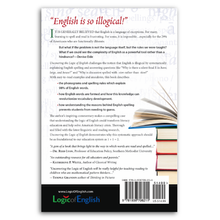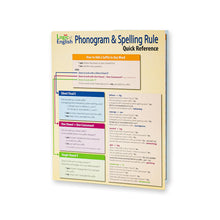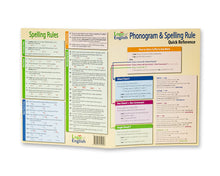What makes English spelling complex?
Phonograms Make More Than One Sound
Sounds Have More Than One Spelling
English Is Morpho-Phonemic
Tips for Teaching Spelling
-
Start With Phonemic Awareness
Spelling begins with the ability to segment and blend words using their individual sounds.
-
Prioritize the Basic Phonograms
Explicitly teach the phonograms that are used frequently in the language and those used to spell high-frequency words.
-
Teach Complete and Accurate Phonics
Inaccurate and incomplete phonics generates exceptions and leads to guessing and rote memorization.
-
Model Discovering Advanced Phonograms
Many phonograms are used infrequently and only in advanced vocabulary. Once students know the basic phonograms, model how to discover new phonograms.
-
Teach Reliable Spelling Rules
Spelling rules that work build students' confidence in the language and in themselves.
-
Teach Using Spelling Analysis
Introduce students to new words with this powerful learning routine that models how to understand the written structure of any word.
-
Teach the Definition of Vowels and Syllables
Understanding vowels and syllables and how they work together is a key to unlocking English spelling.
-
Teach That English is Morpho-Phonemic
The spelling of a word provides clues to both how it sounds and what it means. Knowing this helps take the mystery out of English spelling.
The Benefits of Teaching Spelling
-

Improves Reading Fluency
Improving spelling brings about immediate improvements in reading fluency (Ouellette et al., 2017). This is true for emerging readers as well as college students!
-

Eliminates Exceptions
Accurate phonics rules make words that were once exceptions logical. A single concept can unlock hundreds to hundreds of thousands of words.
-

Empowers Efficient Use of Spell Checking Tools
Accurate spelling rules empower writers to use a spell checker more effectively. When a spell checking tool underlines a word, you will now know additional options for how to spell the word.
-

Facilitates Learning New Words Quickly
Systematic instruction in phonics and morphology facilitates orthographically mapping words (bonding the spelling, pronunciation, and meaning) more quickly (Ouellette et al., 2017).
Shop Spelling Resources
Shop Curriculum
References
Ouellette, G., Martin-Chang, S., & Rossi, M. (2017). Learning From Our Mistakes: Improvements in Spelling Lead to Gains in Reading Speed. Scientific Studies of Reading, 21(4), 350–357. https://doi.org/10.1080/10888438.2017.1306064























